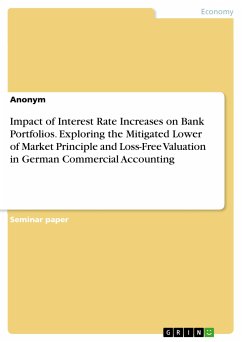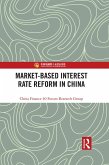Seminar paper from the year 2022 in the subject Economics - Finance, grade: 1,3, University of Applied Sciences - Hachenburg Castle, course: Finanzsaufsicht, language: English, abstract: The current rise in interest rates leads to significant losses in the value of banks' own portfolios, especially for small and medium-sized banks. This paper considers how the application of the moderate lower of market principle may, in some circumstances, serve to reduce the negative impact of such an increase in interest rates. Accordingly, the valuation rules of the German Commercial Code in conjunction with the IDW statement on loss-free valuation in the banking book offer considerable scope of discretion for German institutions. The paper first outlines the principles for the classification and valuation of securities in commercial accounting. In this context, the valuation rule of the mitigated lower of market principle is explained and its influence on the formation of a provision for contingent losses in the scenario of a temporary impairment is shown. Furthermore, the IDW's statement on the loss-free valuation of the banking book is presented, according to which the prerequisites and requirements for reclassifications are explained. The aim of the paper is to highlight and categorically present the resulting consequences for banks. These include tax, regulatory and accounting advantages for banks by making full use of the legal framework.
Dieser Download kann aus rechtlichen Gründen nur mit Rechnungsadresse in A, B, BG, CY, CZ, D, DK, EW, E, FIN, F, GR, HR, H, IRL, I, LT, L, LR, M, NL, PL, P, R, S, SLO, SK ausgeliefert werden.









